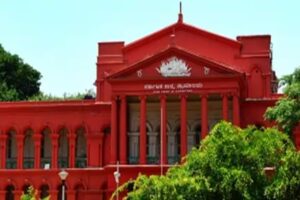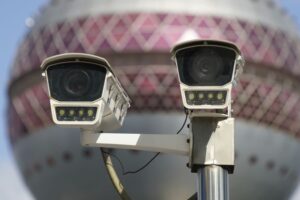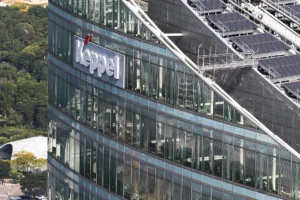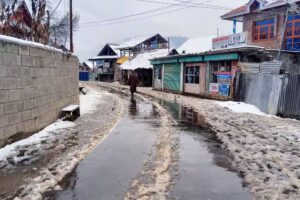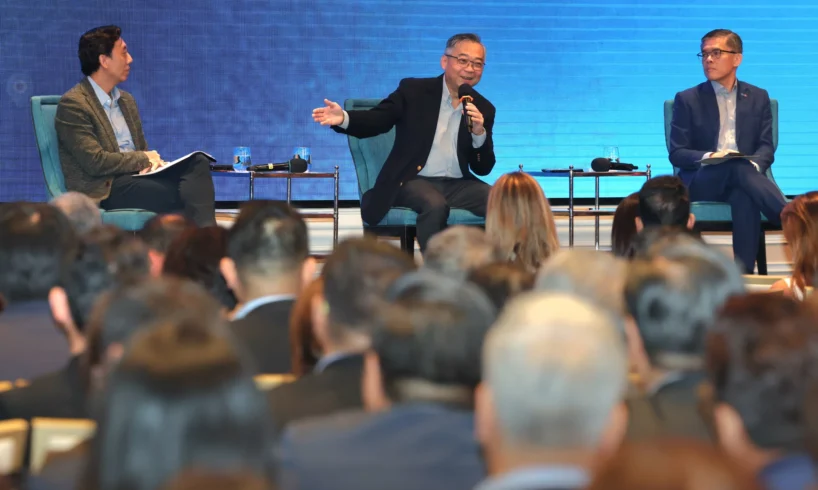
Rather than ‘wait and see’, companies should ‘wait and do’ by upgrading and upskilling ahead of time, he adds
[SINGAPORE] Companies thinking of arbitraging between different US tariff rates “have to be careful” to avoid the risk of stiff penalties, Deputy Prime Minister Gan Kim Yong warned on Tuesday (Sep 9).
“If you think that by going through Singapore, you benefit from Singapore’s 10 per cent (tariff) instead of Malaysia’s 19 per cent, you are mistaken,” DPM Gan said in a fireside chat on navigating US tariffs, organised by the Singapore Business Federation (SBF).
The US is paying a lot of attention to transhipments, he noted. If such a transhipment violates the rules of origin – which are still being worked out – then the US will either impose the originating country’s tariff or a 40 per cent penalty, if there was a deliberate attempt to bypass transhipment rules.
“This is a time when I should remind all our companies to be very mindful about the rules imposed by the US,” said DPM Gan.
Those in doubt can consult the SBF, which can guide and clarify which rules apply, he added.
He was responding to SBF chief executive officer Kok Ping Soon, who asked if the fact that Singapore faces the lowest 10 per cent baseline tariff presents “tariff arbitrage opportunities”, since all its Asean neighbours face a higher rate.
BT in your inbox
Start and end each day with the latest news stories and analyses delivered straight to your inbox.
DPM Gan said he has been reminding Singaporeans they “mustn’t be too happy” about the relatively low rate.
“First, you must remember we started with zero tariff, so now that there is a 10 per cent tariff, it’s very odd that we feel happy about it,” he said to laughter from the audience.
He reiterated that the higher tariffs on Singapore’s key trading partners do affect the city-state, when its exports to them are incorporated into products shipped to the US.
SEE ALSO
“They will be facing higher tariffs and, in turn, the demand will slow down, and our exports to these countries will slow down.”
There is a second effect on investments, he noted. As the US is focusing on onshoring manufacturing capabilities, this could draw investments away from other countries.
A third effect is that countries may make commitments to buy more or invest more in the US at the expense of existing partners, including Singapore.
“Wait and do”
While many companies are adopting a wait-and-see attitude amid such uncertainty, they should “wait and do” instead, said DPM Gan.
“We can invest in our infrastructure, invest in connectivity, invest in our people, upskilling, upgrading so that we are ready – when the time comes – to move very quickly.”
Singapore should leverage its key advantage of being nimble to create more opportunities for itself.
He noted that the Singapore Economic Resilience Taskforce (Sert) has been set up to do that.
Beyond tackling immediate challenges, Sert is reviewing Singapore’s longer-term economic strategy from five different angles, including global competitiveness.
“Play dirty” when rules mean less
Acting Transport Minister Jeffrey Siow, who co-chairs the Committee on Global Competitiveness, said he is looking at three broad areas: to enhance Singapore as an investment destination, to develop enterprises, and to strengthen the Republic as a hub for flows.
On the first, he said: “It is looking at how we can compete more aggressively for investments, even playing dirty if we have to.”
Siow, who is also senior minister of state for finance, noted that Singapore has always been a “boy scout”, as an investment destination that stands for stability, certainty, regulations and good governance.
“Those are strengths that we have, we are not going to necessarily abandon them, but I think we also have to be more clever in a world where rules mean less, tariffs are commonplace, and we have to compete for investments with other people who may not be prepared to play by the same rules,” he said.
The second area involves developing Singapore’s enterprise hub. He said this means helping both local and foreign companies based here to strengthen themselves and grow overseas.
He said the government has been supporting them for some time, “but increasingly, we know what the limits of our Singaporean market” are.
“For us to have outsized influence in the world and to be able to continue to grow in this different economy, we have to look at where the opportunities are and direct companies to the markets where we see where there’s higher potential,” he said.
In the third area, the committee is looking at strengthening Singapore as a “hub for flows”.
Siow noted that Singapore has always been a hub for goods, services, capital and talent, but new flows are emerging.
These include data – which is fundamental for technology and artificial intelligence (AI) – as well as energy and renewable energy.
“We want to make sure that we are at the centre of it,” he said, adding that it is important to ensure Singapore is not “bypassed when it comes to these very critical fields”.
Trade advisory through GenAI
Separately, SBF’s Centre for the Future of Trade and Investment (CFOTI) launched a generative AI tool called Trade AI Advisor (TAIA) to dispense advisory on global trade.
Powered by “trusted sources” and SBF’s extensive database of free trade agreements (FTAs), TAIA delivers guidance and “actionable answers” to navigate FTAs, tariffs and compliance requirements, helping them to stay competitive, SBF said in a statement.
CFOTI also announced partnerships with six organisations to deepen regional trade and investment connectivity, build enterprise capabilities and co-develop solutions for businesses to handle the turbulent trade environment.
These organisations are DBS, DHL Express Singapore, Pacific International Lines, PwC Singapore, Rajah & Tann Singapore and Temasek Foundation.

